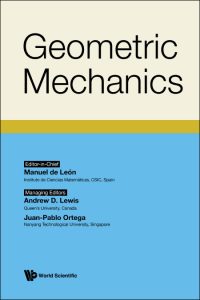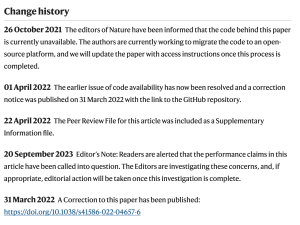
Would you consider a donation to support Weekend Reads, and our daily work?
The week at Retraction Watch featured:
- Yale professor’s book ‘systematically misrepresents’ sources, review claims
- Nature flags doubts over Google AI study, pulls commentary
- Anthropology groups cancel conference panel on why biological sex is “necessary” for research
- After resigning en masse, math journal editors launch new publication
We also added The Retraction Watch Mass Resignations List.
Our list of retracted or withdrawn COVID-19 papers is up to well over 350. There are more than 43,000 retractions in The Retraction Watch Database — which is now part of Crossref. The Retraction Watch Hijacked Journal Checker now contains over 200 titles. And have you seen our leaderboard of authors with the most retractions lately — or our list of top 10 most highly cited retracted papers?
Here’s what was happening elsewhere (some of these items may be paywalled, metered access, or require free registration to read):
Continue reading Weekend reads: ‘The band of debunkers’; a superconductor retraction request; ‘the banality of bad-faith science’






